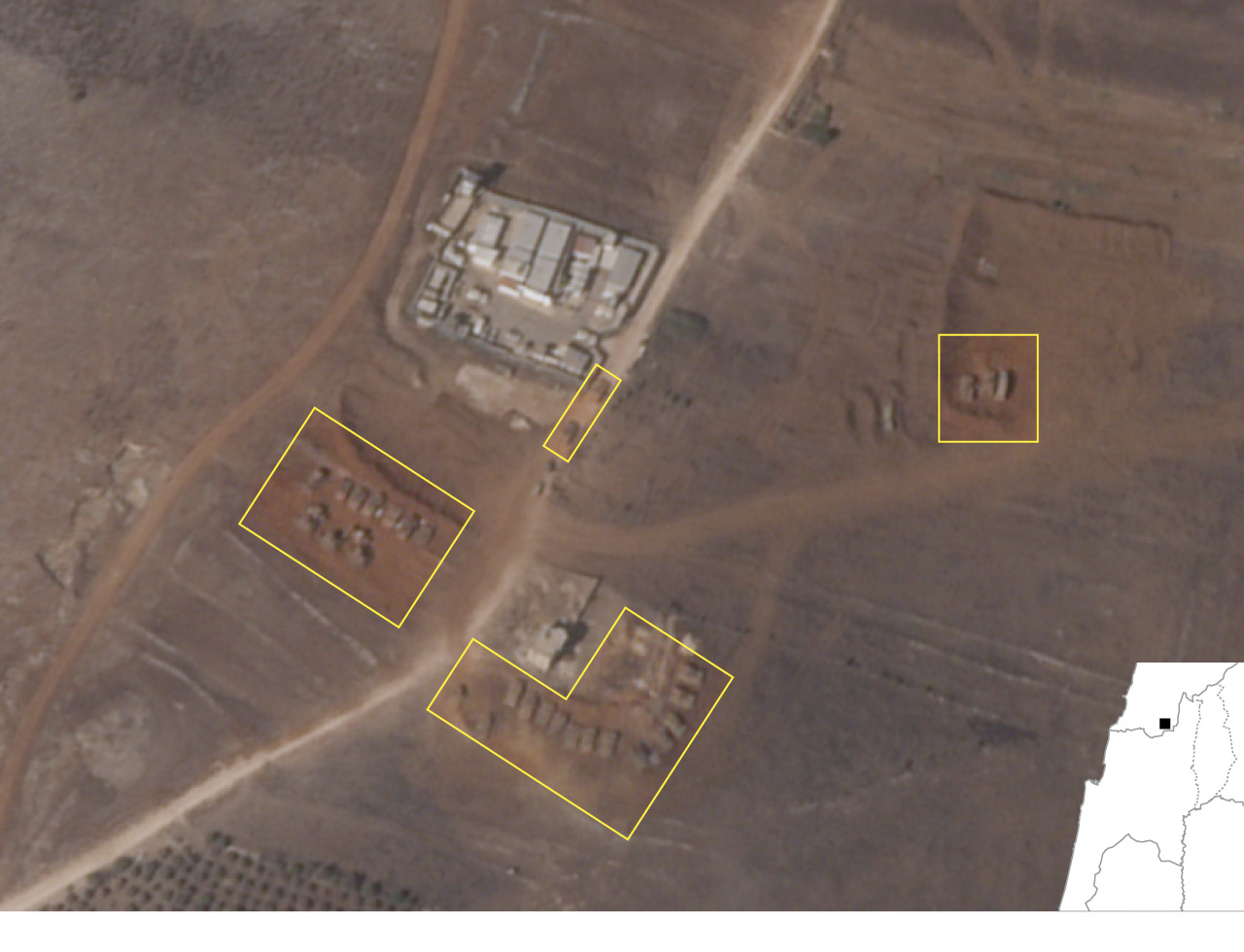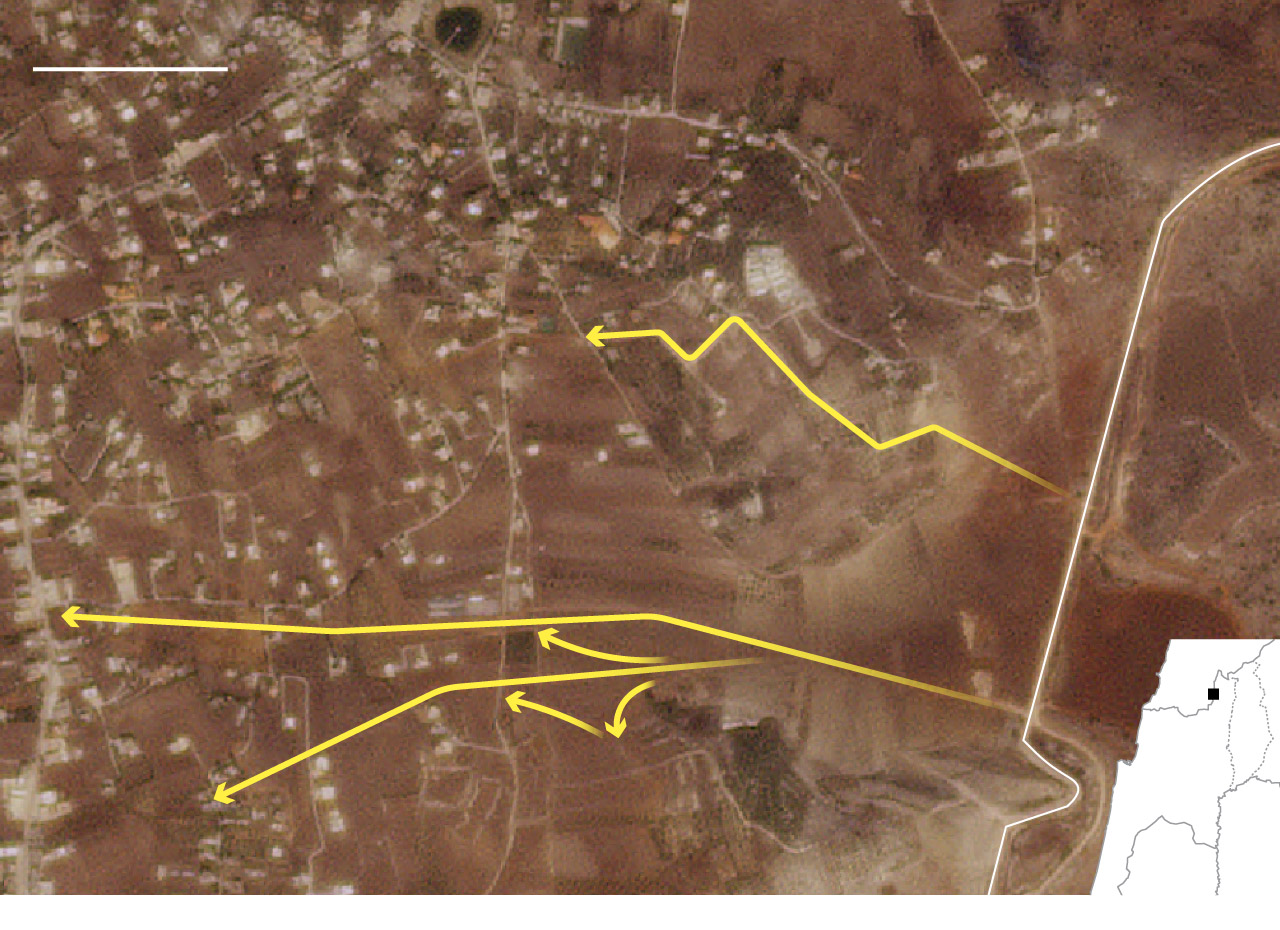Peacekeepers wounded by Israeli fire in Lebanon, U.N. says, as tensions rise
Israeli forces have fired at three U.N. positions in the south of Lebanon, the United Nations said Thursday, escalating a nearly week-long standoff with peacekeepers.
 |
| A U.N. peacekeeper vehicle drives in Naqoura, near the Lebanon-Israel border, in southern Lebanon in 2020. (Aziz Taher/Reuters) |
The statement also accused Israeli soldiers of firing on two other positions nearby, hitting the entrance to a bunker where peacekeepers were sheltering in Ras Naqoura, along the coast, and damaging equipment at a relay station closer to the border.
The Israel Defense Forces said in a statement late Thursday that Hezbollah “operates from within and near civilian areas in southern Lebanon, including areas near UNIFIL.” On Thursday, the statement said, IDF troops operating next to the base in Naqoura “instructed the UN forces in the area to remain in protected spaces, following which the forces opened fire.”
Tensions between the IDF and UNIFIL forces first came to light Sunday, when a U.N. official confirmed that Israeli forces were in the process of building a forward operating base on Lebanese soil that was “dangerously” close to another U.N. position. The Israeli troops withdrew Tuesday, according to the U.N. secretary general, but had returned by Wednesday morning, said Andrea Tenenti, the UNIFIL spokesperson in Beirut.
The situation was changing by the minute, Tenenti said Wednesday, “putting our peacekeepers at risk and hindering our ability to operate effectively.”
The original flash point, known as 6-52, houses Irish and Polish troops and is located some 750 yards from the southeastern border town of Maroun al-Ras: the entry point for the last Israeli invasion of Lebanon in 2006 and the site of some of that war’s bloodiest fighting. The IDF presence there offered a rare window into the progress of its ground offensive against Hezbollah, while Thursday’s escalation underscored the precarity of the peacekeeping mission in southern Lebanon.
Satellite imagery taken Saturday by Planet Labs and obtained by The Washington Post showed around 30 Israeli military vehicles positioned in three locations next to the U.N. base, some just a few feet away — matching recent photographs taken by troops inside.

Oct. 5, 2024
UNIFIL
position
6-52
Military
vehicles
Military
vehicles
LEB.
Detail
ISR.
JOR.
Satellite © Planet Labs 2024
The IDF did not respond to multiple requests for comment about why its forces were positioned so close to a U.N. position.
There are more than 10,000 UNIFIL peacekeepers from 50 countries stationed along the Lebanon-Israel border, tasked with monitoring the cease-fire reached by the two countries after the 2006 conflict — one that mostly held until Oct. 8 last year, when Hezbollah began launching rockets into northern Israel in solidarity with Hamas in Gaza. Israel retaliated with months of airstrikes across Lebanon.
Last week, as Israeli troops invaded southern Lebanon, the IDF ordered the United Nations to evacuate its bases near the border. But Tenenti said the instructions were vague and did not specify which of its 50 positions should be vacated. Soon after the order came down, Tenenti said, the dozens of countries that make up the force collectively agreed their troops would remain in place.
“We decided we need to continue to fly the U.N. flag,” Tenenti said. “This is our mandate, and although that mandate has been heavily challenged, it is important to send the signal that we are staying.”
Israeli troops began to station themselves around 6-52 almost as soon as the United Nations declared its troops would stay put — leading UNIFIL to put out a rare statement blasting the IDF for “unacceptable” activities that put peacekeepers in harm’s way. The United Nations said it was in “repeated” conversations with the Israeli mission in New York over the “dangerous” developments.
Yet those talks appear to have done little to calm tensions on the ground. U.N. positions have been “repeatedly hit” by the IDF, according to UNIFIL’s statement Thursday. Israeli fire damaged vehicles and a communications system in Naqoura, the statement said, and a drone was observed inside the base. IDF soldiers also “deliberately fired at and disabled the position’s perimeter-monitoring cameras,” UNIFIL said.
“For now, we are staying,” a U.N. official told The Post on Thursday, speaking on the condition of anonymity because of the sensitivity of the issue. “But this is bad.”
The peacekeepers’ continued presence in an active and growing war zone is likely to lead to further confrontations with Israeli forces. In the Irish area of responsibility alone, three UNIFIL bases sit in villages under IDF evacuation orders. And across the territory they are charged with monitoring, U.N. officials say, most UNIFIL soldiers are largely confined to bunkers, surrounded by heavy fire, unable to carry out basic tasks.
Italian defense minister Guido Crosetto said Thursday that the IDF’s “hostile acts … could constitute war crimes,” while Micheál Martin, Ireland’s foreign minister, said in a post on X that it was “reprehensible & unacceptable to injure peacekeepers.”
Recent reports in Irish media said some troops from 6-52 had called home to say they did not know how or when they would be able to leave Lebanon. In a photo leaked by a peacekeeper at the base and published in Irish newspapers, the barrel of a tank was facing directly at the window of their post.
Jonathan Conricus, a former IDF spokesman and senior fellow at the Foundation for Defense of Democracies, said Wednesday that the IDF “will balance between its operational needs to defeat Hezbollah and the safety of UNIFIL personnel on the ground. The responsible and wise thing to do at this moment on behalf of the U.N. would be to evacuate all peacekeepers from southern Lebanon until the fighting is over,” he added.
Israeli officials have long criticized UNIFIL as a toothless mission, preoccupied with monitoring small border violations rather than preventing militants from entrenching themselves in the south.
David Mencer, spokesperson for Israel’s National Public Diplomacy Directorate, said Thursday that UNIFIL has been “an abject failure.” Its “purpose was to ensure that Hezbollah did not exist between the Litani River and our southern border,” he added. “They’ve never fulfilled that task.”
The full scope of Israel’s ground offensive remains unclear. Large parts of the south have been almost entirely depopulated by relentless aerial bombardment, leaving few eyewitnesses behind, and the border areas that have seen the heaviest fighting are inaccessible to journalists.
While the IDF has declined to say how many troops it has sent into Lebanon, military analysts and former Israeli defense officials shared a range of estimates with The Post, the lowest of which was 20,000. The satellite imagery taken around the UNIFIL base Saturday was among the clearest documentation to date of Israeli military movements inside the country.
Newer satellite photos show that Maroun al-Ras is one of at least five locations where Israeli forces have pushed into Lebanon. Vehicle tracks, scorched earth and damaged or destroyed buildings mark other paths of Israeli advances in the towns of Yaroun, Odaisseh and Kfar Kela over the past week. Another image from Planet Labs shows vehicle tracks leading from the border to the village of Meiss el Jabal. The tracks first appeared Monday, extending further into the village and its outskirts on Tuesday.

Oct. 8, 2024
0.2 MILES
Meiss el Jabal
LEBANON
Vehicle tracks
ISRAEL
Vehicle tracks
LEB.
Detail
ISR.
JOR.
Satellite © Planet Labs 2024
Since beginning its ground operations in southeast Lebanon last week, Israeli troops have moved westward, adding new troop divisions at each stage. Evacuation warnings — which Israel has placed on at least 117 villages and towns, according to a Washington Post tally — have spread across much of the southern border and now cover almost a third of the country’s coastline.
Normally, UNIFIL would be patrolling alongside the Lebanese army and coordinating deconfliction between the warring parties to allow for humanitarian evacuations and aid convoys. Now, their presence is a largely symbolic one and increasingly under threat.
Monitoring activities are limited to whatever the cameras and radars attached to their positions can capture, and some of that equipment has been damaged. Some UNIFIL forces can move around their positions but not beyond them.
“Any deliberate attack on peacekeepers is a grave violation of international humanitarian law,” the United Nations said in its statement Thursday. “We are following up with the IDF on these matters.”
Ley and Hill reported from New York and Soroka from Tel Aviv. Steve Hendrix in Jerusalem, Samuel Oakford in New York, Imogen Piper in London and Stefano Pitrelli in Rome contributed to this report.







